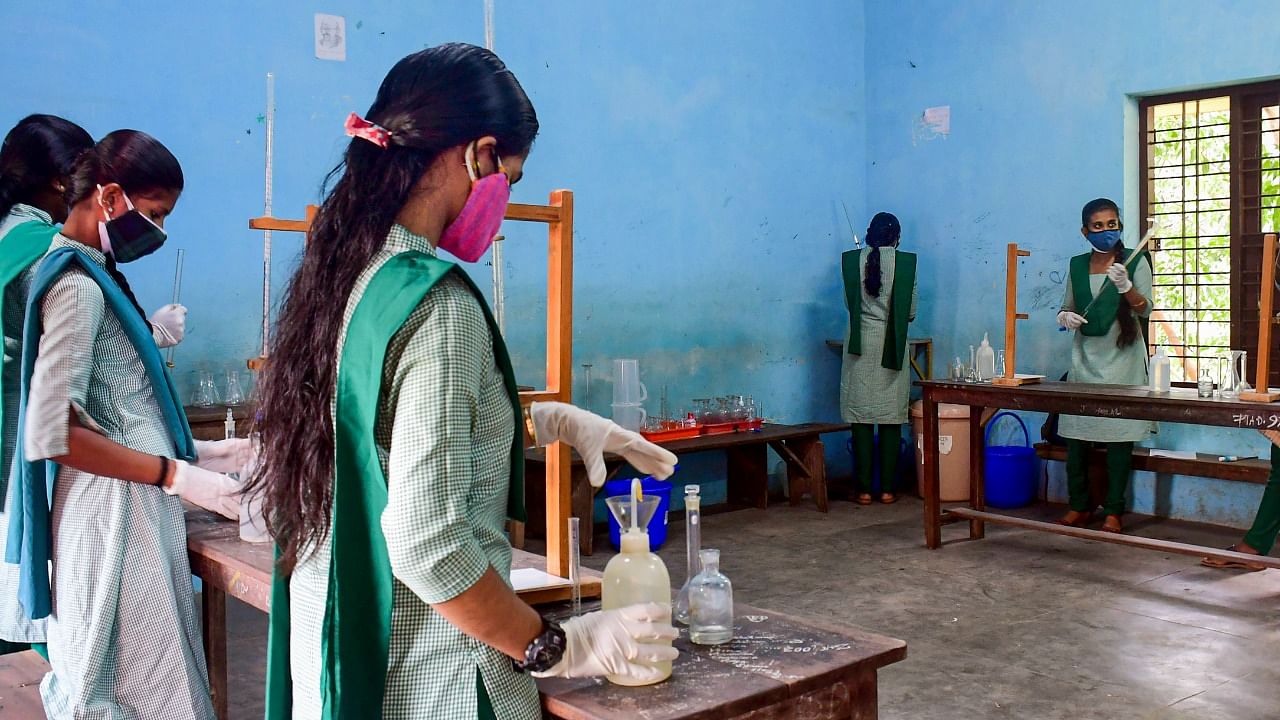
An expert panel headed by eminent cardiac surgeon Dr Devi Shetty has strongly recommended the reopening of schools in Karnataka. The panel also suggested that the government offer an insurance cover of Rs 2 lakh per student when schools open by way of a reassurance to parents during the transition period.
The report ruled out the possibility of schools becoming infection hubs and asserted that no such instances have been proved anywhere in the world. Schools have been open in many parts of the world. They believe that children are safer in schools than at home.
There was a speculation that children are likely to be affected more in future in the country. But it turned out to be a false alarm. A Stanford University panel of experts also refuted this and said there was no scientific evidence to show that children would be disproportionately affected by the virus.
According to a World Health Organisation (WHO) report, social workers, counsellors and child advocates have raised an alarm that school closures have led to a surge in child abuse. Experts fear that this could lead to more accidents and injury among children left alone at home. It also results in deeper economic woes for parents who are forced to quit their jobs or cut back on their working hours to stay with the children.
Meanwhile, WHO has announced a checklist to support the reopening of schools, which includes “38 essential actions to be considered by different stake-holders as they work together on school reopening plans”. Training of teachers, preparing parents to participate in safety measures and motivating students to follow safety guidelines are integral components of the reopening regime recommended by the WHO.
Obviously, schools will have a much greater responsibility at hand. They need to guarantee enough safeguards such as face masks for teachers and staff, and children above 8 years, temperature testing, social distancing, decrease in classroom capacity, holding classes outdoors, regular virus testing etc. Schools will have to invest money for several sanitary accessories, safety tools and equipment.
Schools have remained largely closed during the last academic year. This has resulted in a huge dilution in learning and a noticeable decline in academic discipline in children. Online classes and their efficacy are questionable. Ask any teacher, and she will testify to the inadequacies of remote learning. No mode of learning can replace the living voice of the teacher in a live classroom. Most assuredly, there is no substitute for the real school.
Children have lost an entire year of invisible learning which comes to them through their school interactions and activities. Peer interaction itself plays a major role in developing their social skills. Children learn social adaptability skills from school, something they will never get at home, especially from nuclear families which are the norm these days.
Getting aggressive
It is a fact that children turn aggressive when their natural instincts are curbed. The crucial one is their play instinct. When children are confined to their houses, they are being deprived of their natural urge to play. Parents also tend to lose their patience when dealing with their children, at times even leading to physical punishments bordering on brutality. This is very unfortunate.
The likelihood of school dropouts is yet another stark reality. The longer the schools remain closed, the larger the number of students walking out of schools for good. It would be impossible to get them back, especially if they come from socially backward sections of society. Many of them are already engaged in child labour. The parents would rather earn money from them working than spend money on them for their schooling. Poverty can see only the immediate daily needs, not the dreams of a distant future.
We have to be aware of the long-term implications of school closure. The sad fact is that those who take decisions do not seem to give a thought to these realities. They are tempted to settle for the default option of keeping everything shut, including schools. It doesn’t require much thinking or effort to close schools, but a lot of planning and thinking to open schools. Perhaps that is exactly why the authorities defer a decision casually and indefinitely.
The government should not dither anymore, like last year. They need to act decisively on the panel’s recommendations - that schools be allowed to reopen in a phased manner, starting with senior classes. Eventually, all classes including Kindergartens can follow suit.
Parents should be reassured that all safety norms will be followed in schools and that their children will not only regain their learning rhythm but also remain cheerful and healthy. School has a perennial influence on children during their formative years. Opening schools needs care and caution but there is a lot to gain. Keeping schools closed causes substantial losses that are invisible but far-reaching.
(The writer is Director, Little Rock Indian School, Brahmavar, Udupi Dist)